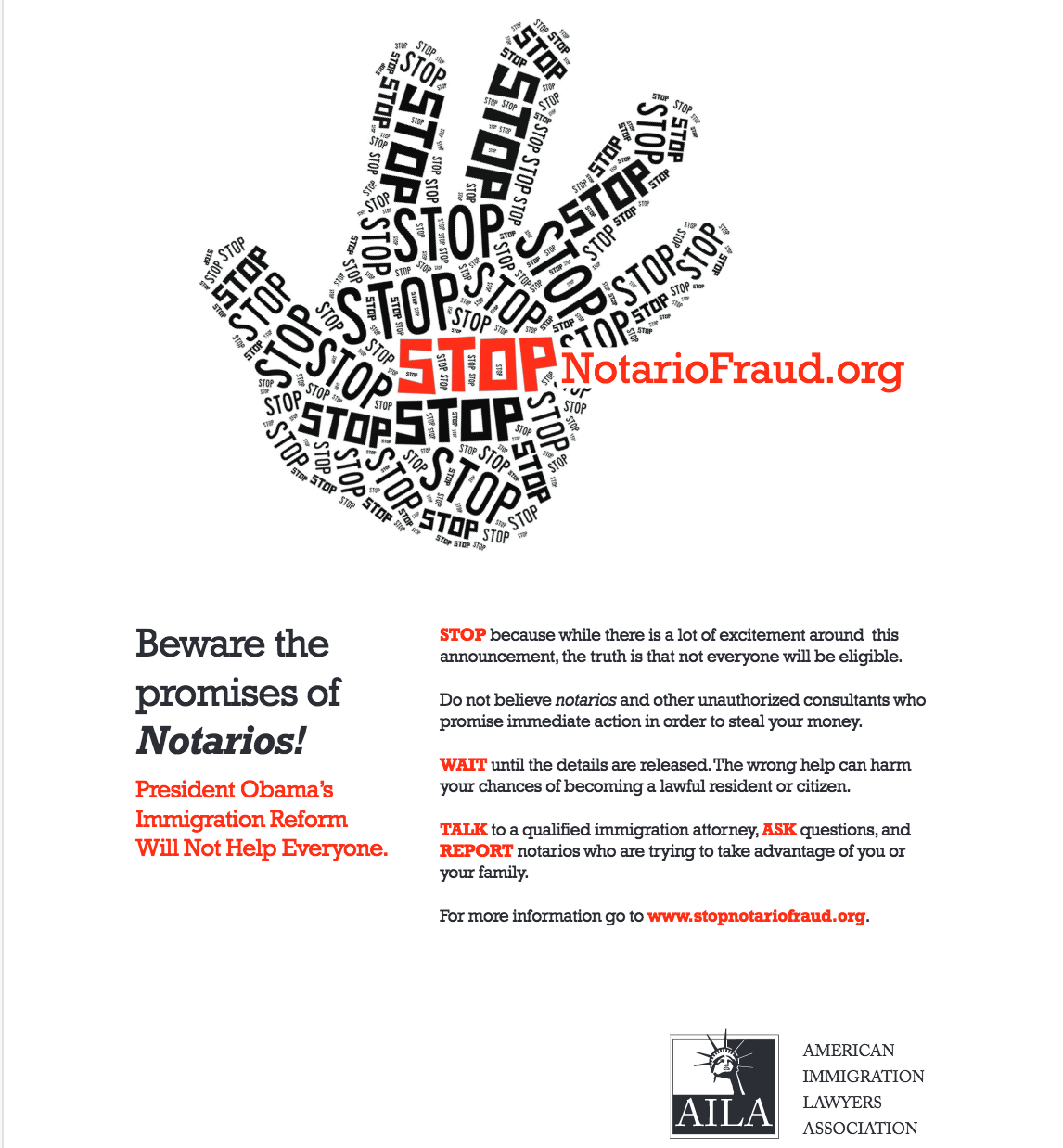The state of Colorado is set to pass a new bill known as HB16-1391 that will prosecute non-attorneys posing as licensed immigration attorneys or legal representatives in matters relating to immigration. Colorado Senator Dan Pabon, first introduced the bipartisan bill, HB 16-1391 the Immigration Consultants Deceptive Trade Practice, before the Colorado Senate earlier this year. The focus of HB16-1391 is to crackdown on “notarios” targeting the Hispanic community, who are not licensed to practice law in the United States. The word “notario” in some Latin American countries refers to a person that is either highly trained to conduct legal matters or is an attorney. The word notary in the United States takes on a different meaning. A notary public in the United States is not an attorney and cannot conduct legal matters. They cannot provide legal advice nor represent individuals before court. Instead, a notary public can attest or certify writings to make them authentic. Notary publics are typically involved in the certification of affidavits, depositions, and other negotiable documents. In the United States they witness the making of documents and sign in order to attest that documents are authentic. The Hispanic community is often misled by these “notarios” who advertise themselves as authorized legal representatives and/or attorneys for compensation. Despite the fact that these “notarios” are not authorized to offer legal consultations, they often do causing irreparable damage to the people they serve. They often give false hope to people in the United States unlawfully and mislead them into applying for an immigration benefit they are not eligible to receive, prompting their removal from the United States. The bill, Immigration Consultants Deceptive Trade Practice, will prohibit non-attorneys from conducting consultations, receiving compensation, and providing legal services to individuals related to immigration.
If passed, the law will prohibit a non-attorney from receiving compensation and engaging in the practice of law in an immigration matter, unless the following apply:
- The person is licensed or otherwise authorized to practice law in the State of Colorado pursuant to Colorado Supreme Court Rules.
- The person is authorized, under federal law, whether acting through a charitable organization or otherwise, to represent others in immigration matters;
HB16-1391 is divided into two sections as mentioned below:
Section 1 of the bill establishes that if a person, other than a licensed attorney or person authorized under federal law to represent others in immigration matters, engages in certain practices that amount to providing or offering to provide legal advice or legal services in an immigration matter, the person is engaged in a deceptive trade practice. The attorney general or a district attorney may seek civil penalties against the person under the “Colorado Consumer Protection Act”.
Section 2 requires a notary public or “notario” to provide a disclaimer in any advertisement of his or her services, stating that they are not a licensed attorney authorized to practice law in the State of Colorado, that they are not immigration consultant, nor an expert in immigration matters. As such a notary public or “notario” cannot give legal advice or accept fees for legal advice in the United States.
The legislation further stipulates that a notary public who is not an attorney licensed to practice law in the State of Colorado is expressly prohibited from:
- Soliciting or accepting compensation to obtain relief of any kind on behalf of another from any officer, agency, or employee of the state of Colorado or of the United States;
- or using the phrase “notario” or “notario publico” to advertise the services of a notary public, whether by sign, pamphlet, stationery, or other written communication or by radio, television, or other nonwritten communication;
- or engaging in conduct that constitutes a deceptive trade practice;
Thus far, the bill has been signed by the President of the Colorado Senate and Speaker of the House. The bill is currently making its way to the governor for official signature. Please remember to ask the person who is conducting your legal consultation whether they are an attorney licensed to practice immigration law in the United States. If they are an attorney, you should ask for their bar number and the state in which they are licensed. You can verify whether an attorney is eligible to practice law by searching for their name and bar number on the respective state bar website. You should not make payment to any person or sign any legal agreements until you verify the attorney’s information.
To read the complete legislation please click here.
For more information on how you can protect yourself from deceptive practices of non-attorneys please click here.
For more information about where to report scams click here.
For legal advice please contact our office.
 Visa Lawyer Blog
Visa Lawyer Blog


